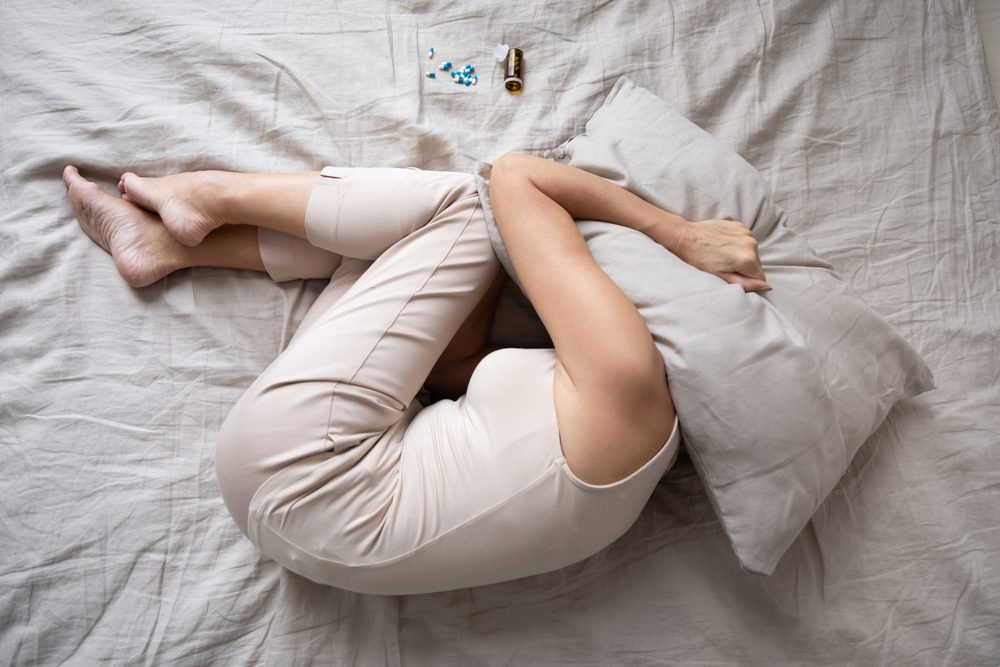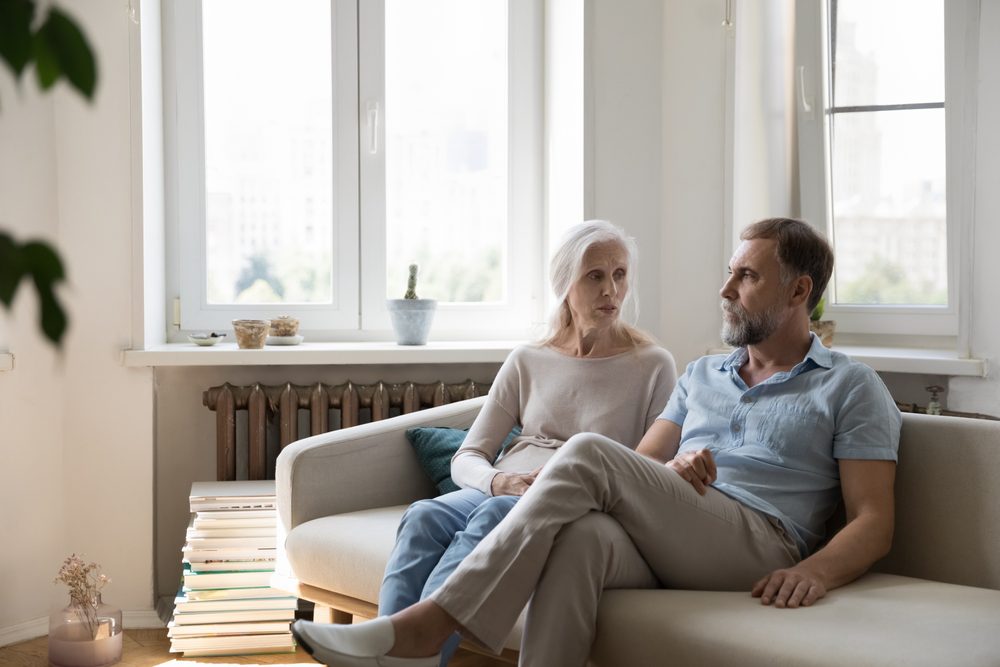How can you tell if you have depression or anxiety?
Two examples of mood disorders are anxiety and depression. Depression, among other things, results in sad, hopeless, and low-energy feelings. On the other hand, feelings of irritability, worry, or fear are usually produced by anxiety. Despite the fact that the two circumstances are different, you can have both at once. Depressed people can sometimes manifest agitation and restlessness as other symptoms.
Occasionally experiencing anxiety or depression is common. If you have these emotions frequently and they have a negative impact on your life, you may have a treatable illness.
It is very important to consult a doctor, who can help you figure out which of the two diseases you have and give you the proper medication for it. Let’s look at some of the similarities between these two mental illnesses and, most importantly, how you can identify them and ask for early help!
-
What Is Anxiety?
There are numerous meanings for the term “anxiety.” And when we feel anxious and nervous this word is mostly used to define these emotions. However, when we use it in a medical context, it actually refers to a variety of illnesses.
Since fear and worry are normal parts of human existence, we don’t see a reason to worry about them. However, if they do not go away quickly and continue for an extended period of time, they may be symptoms of this illness.
If you regularly experience any of the following: feeling irritated or on edge most of the time, worried most of the time, or out of control, you might want to talk to your doctor.

-
What is Depression?
In reality, even if most of us don’t see it this way, this is an illness. It can seem extremely different to various people and has a wide range of symptoms. But this phrase only relates to one illness, because there are a lot of other signs and symptoms that a depressed person may face and that includes helplessness, thoughts of suicide or death (which are the biggest red flags), low self-esteem, and guilt.
You must have these symptoms for most of the day, nearly every day, for at least two weeks in order for them to be recognized as depressive symptoms. Additionally, they shouldn’t have a medical cause, such as a thyroid issue. Your doctor can examine you for illnesses that might be contributing to your symptoms.
-
Physical symptoms
Both mental issues have a number of physical symptoms. Difficulty sleeping, poor focus, and tiredness are three main symptoms that include both illnesses. But these are only mentally related, because if you are dealing with one of the two conditions mentioned above, you will also deal with some physical symptoms that should definitely draw your attention.
If you experience frequent headaches, muscle tension, even if you do not participate in sports, or a sudden weight change, consult your doctor. If the physical symptoms described above are typically associated with anxious behavior, the ones that are usually associated with depression are: loss of overall interest in hobbies, feeling “blue” most of the time, crying a lot, feeling angry most of the time, but also huge weight changes.
While you may think these mental issues have a lot in common, you are not entirely wrong, but on the other hand, there are a few things that distinguish one from the other.
-
How are these 2 mental illnesses different?
As we mentioned above, the symptoms are the primary distinction between the two. For instance sadness that lasts for a long time is always associated with depressive episodes. Additionally, you lack energy and lose interest in pursuits that you once valued. This disease as horrible as it sounds, might cause some people to consider harming themselves.
Anxiety is characterized by uncontrollable fear or worry. Your anxiety may manifest itself during regular activities like meeting new people, depending on the type you have.
-
How are these 2 mental illnesses related?
Both of them are quite prevalent and frequently co-occur. These symptoms are present in about 60% of patients with anxiety and vice versa. Each illness has the potential to worsen or prolong the symptoms of the others. And one of the most interesting facts about these two is that they can be caused by the same genes. They may have similar brain functions or structural components.
While many people say, “This can’t be from childhood,” they are completely wrong because both mental illnesses can be brought on by stress and trauma in childhood.
You can be more susceptible to feeling depressed if you experience anxiety. According to experts, avoiding the things you dread may cause despair.

-
Can you have them both at the same time?
Even if this might seem easy after we stated the major differences between the two, it’s still a complex process. For instance, a person who has anxiety can also face episodes of depression.
Most people with generalized anxiety disorder also experience depression; in fact, about half of them do. When these issues combine in this way, they can be more significant and persistent than usual. Furthermore, a diagnosis of one issue may occur along with symptoms of a different one, and that makes it a bit difficult and challenging to provide a precise diagnosis.
However, recent statistics estimate that the percentage of depressed individuals who simultaneously face symptoms of anxiety is up to 85%. which is a lot! Is this anxiety the new disease of our generation? According to these statistics, it is very possible!
Many psychologists say that these two illnesses can be mixed (also known as MADD), and a person may have the symptoms of both conditions, but it isn’t that bad to be diagnosed. Still, if you have MADD, you can be treated with proper medication.
-
Can we prevent them?
Unfortunately, there is no simple solution. Most specialists agree that none of them can be stopped. Some people are unsure. Things that cause depression are usually things over which we have no control. For most people, this starts right after a big change in their life or soon after a trauma. Because you are not always in control when something bad happens, how you respond and deal with the stress is entirely up to you.
If you feel helpless and anxious but you’re also feeling down and you don’t know what to do, maybe it’s time to seek out a therapist. First and foremost, it’s really important to determine the cause of why you are feeling the way you feel and understand what you can do to move forward.
Nobody says it’s going to be easy, but it’s good to know that you have someone you can talk to besides your friends and family. After all, a specialized doctor can also give you medication that will make you feel better.
-
How do you treat them?
Medical professionals may face difficulties in diagnosing and treating patients who have one or both illnesses. It’s crucial to describe all of your symptoms to your doctor because of this. Both of them are being treated with talk therapy, medication, or a mix of the two. One of the most commonly used talk therapies is cognitive behavioral therapy (CBT). It teaches you new ways to think and act so that you can avoid doing things that make you anxious or depressed.
The sooner you begin therapy, the more probable it is that it will be effective. If the medication you’re taking doesn’t help with your conditions or if it has any negative side effects, let your doctor know. Finding the medication that is most effective for you could require a few trials.
If you liked this article and you find it useful, don’t forget to check our page too! We have a lot of other useful information for you!
Check out: 12 Incredible Psychology Tips to Get You Out of Sticky Situations.















One Response
My doctor is supplying me with New medications to help ease my depression/anxiety. Fluoxetine Hydrochloride, is the latest to be used.